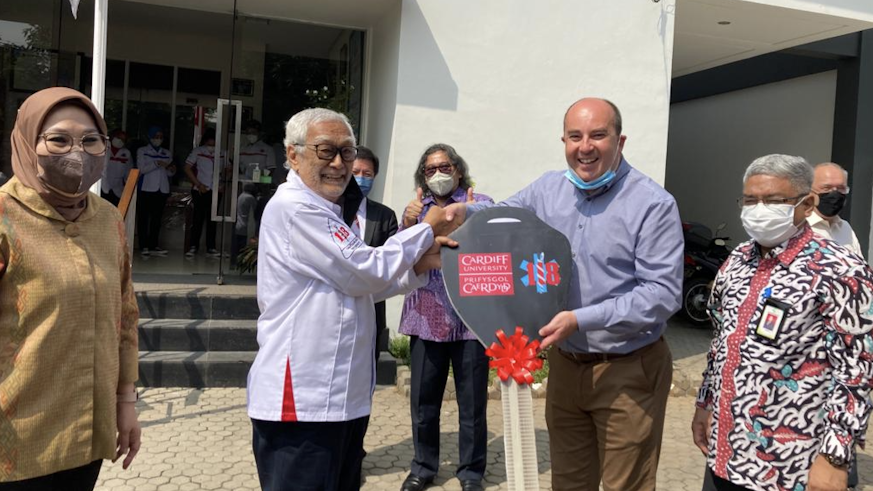EPSRC GCRF grant research team launch new ambulance in Jakarta
10 October 2022

The funded EPSRC GCRF grant research team recently visited Jakarta, Indonesia and were delighted to attend the launch of a new ambulance that has been named in honour of Cardiff University School of Mathematics.
The launch of the new ambulance marked the beginning of a memorable and successful visit to the country for the team who aim to continue to use their research to configure ambulance services across the country and to help to transform emergency care.
Over the past three years, somewhat challenged and interrupted by the pandemic, the team have worked closely with emergency medical services, hospitals and the Indonesian Government to help them forecast emergency demand and make critical decisions on the optimal types, capacities and geographical locations of emergency vehicles. Such factors directly impact on the probability of patient survival, ability to respond to major disasters, and the overall quality of care provided. There are however many challenges faced in the country including vast geographical areas, severe traffic congestion, a lack of a single co-ordinated ambulance service, and inadequate numbers of vehicles and paramedics.

During their visit, the team were able to demonstrate the range of decision support tools that they have developed (including a data dashboard, optimisation/heuristic methods and a simulation framework) and present their findings and key recommendations. Their research has already begun to make impact such as an initial government response to invest in 20 new ambulances in Jakarta, ensuring that ambulances are provided at no cost to patients, and a desire to continue to work with the team to eventually achieve the right vehicle mix and best locations across the city. Moreover, thanks to some follow-on funding, they are planning to extend the work to other regions, ultimately with a view to use their research to help configure ambulance services across the entire country.
As well as symposiums and meetings with senior Government officials, Professor Paul Harper, Dr Sarie Brice, Dr Mark Tuson and Dr Geraint Palmer delivered part 2 of the OR training to local analysts (following on from a visit in August) and were delighted, as a partner on the EPSRC grant, that three Welsh Ambulance staff joined them and were able to deliver much needed paramedic training to Indonesian ambulance staff. Getting proper recognition of ‘Paramedic’ as a profession, along with suitable training, is another of their overall project aims that, along with the mathematical modelling work, will help transform emergency care across the country.